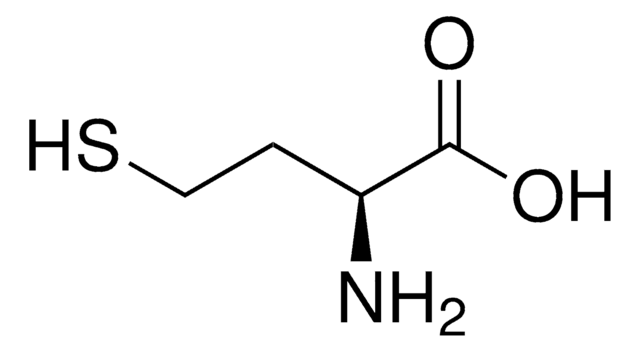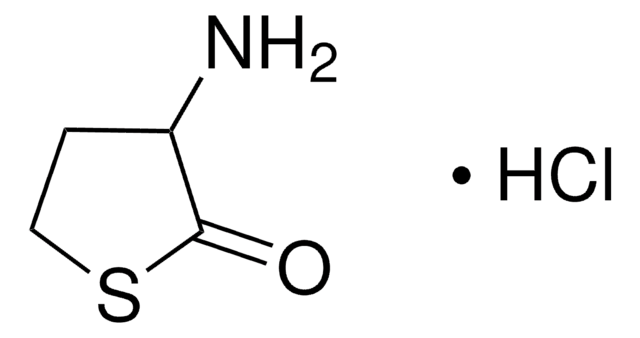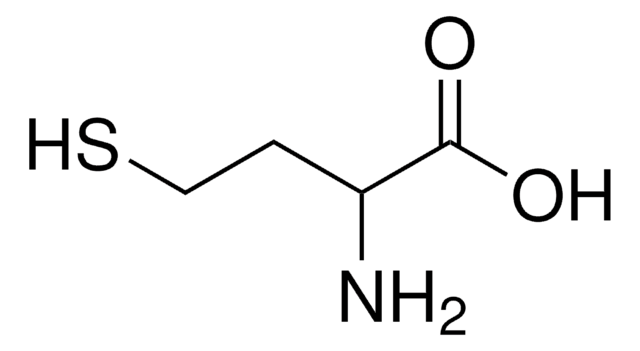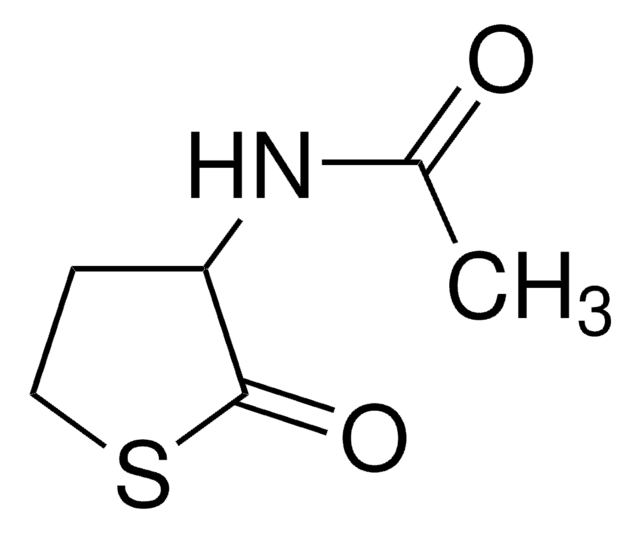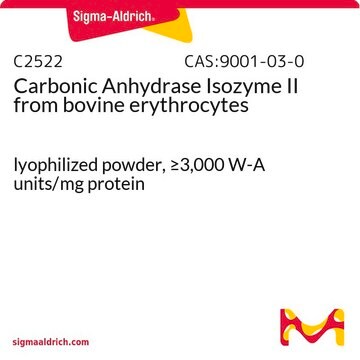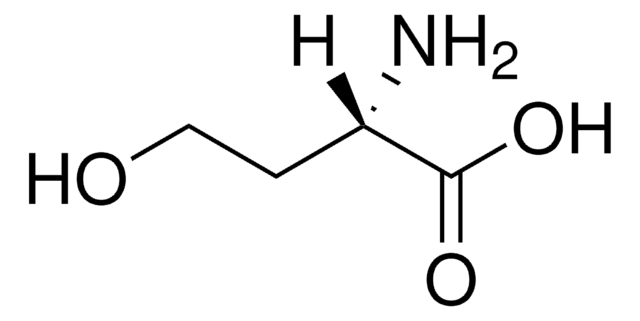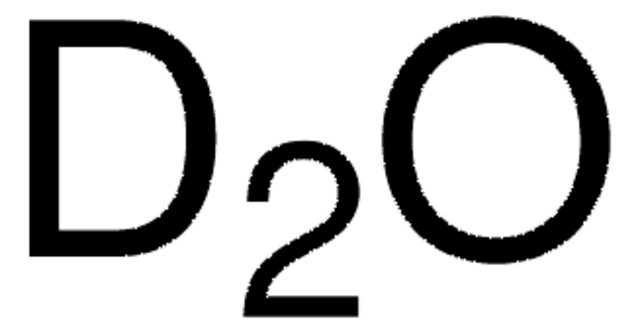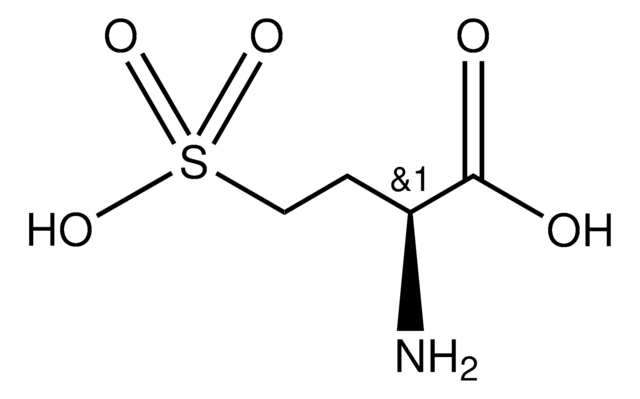H6503
L-Homocysteine thiolactone hydrochloride
≥98% (TLC)
Synonym(s):
L-2-Amino-4-mercaptobutyric acid 1,4-thiolactone hydrochloride
About This Item
Recommended Products
product name
L-Homocysteine thiolactone hydrochloride, ≥98% (TLC)
Quality Level
Assay
≥98% (TLC)
form
powder
color
white
mp
185 °C
application(s)
detection
peptide synthesis
SMILES string
Cl[H].N[C@H]1CCSC1=O
InChI
1S/C4H7NOS.ClH/c5-3-1-2-7-4(3)6;/h3H,1-2,5H2;1H/t3-;/m0./s1
InChI key
ZSEGSUBKDDEALH-DFWYDOINSA-N
Looking for similar products? Visit Product Comparison Guide
Application
- Effects of DL-homocysteine thiolactone on cardiac contractility, coronary flow, and oxidative stress markers in the isolated rat heart: This investigation demonstrates the effects of DL-homocysteine thiolactone on heart function, offering insights into its use in cardiovascular research and potential therapeutic applications (Zivkovic et al., 2013).
- Homocysteine is a novel risk factor for suboptimal response of blood platelets to acetylsalicylic acid in coronary artery disease: The study explores how L-homocysteine thiolactone could affect platelet responses in therapy for coronary artery diseases, pointing to its importance in cardiovascular therapeutics (Karolczak et al., 2013).
Biochem/physiol Actions
Storage Class Code
11 - Combustible Solids
WGK
WGK 3
Flash Point(F)
Not applicable
Flash Point(C)
Not applicable
Personal Protective Equipment
Certificates of Analysis (COA)
Search for Certificates of Analysis (COA) by entering the products Lot/Batch Number. Lot and Batch Numbers can be found on a product’s label following the words ‘Lot’ or ‘Batch’.
Already Own This Product?
Find documentation for the products that you have recently purchased in the Document Library.
Customers Also Viewed
Our team of scientists has experience in all areas of research including Life Science, Material Science, Chemical Synthesis, Chromatography, Analytical and many others.
Contact Technical Service